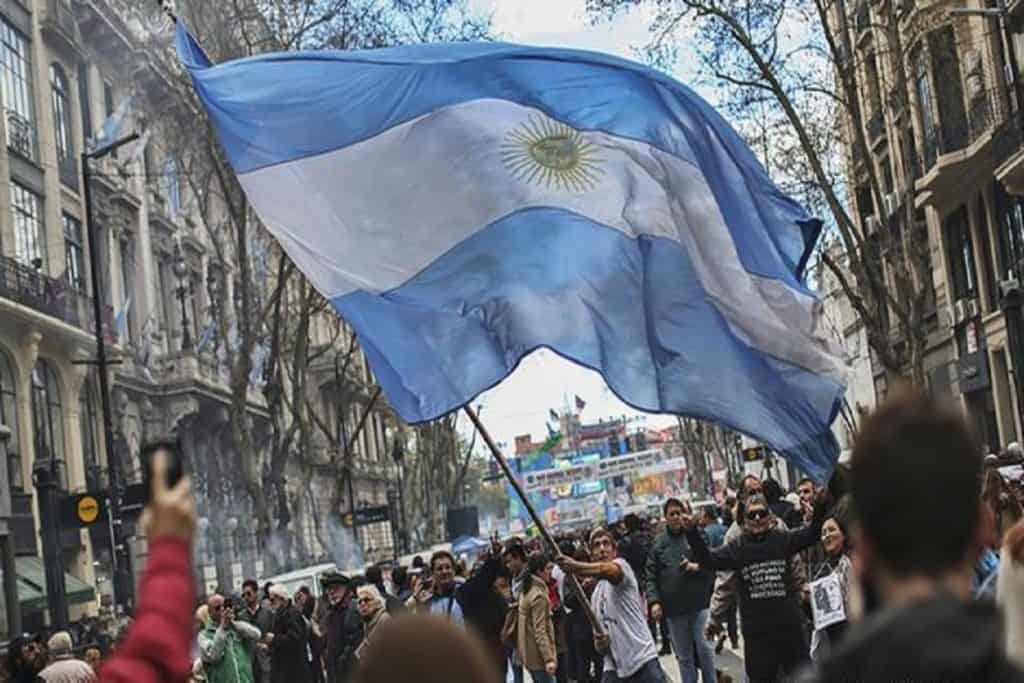By Gustavo Alberto Manzo Ugas (lawyer and University Professor of Constitutional Law, Politics, Philosophy. From Caracas, Venezuela)
The first idea that arises, in relation to the traditional left and right controversy. Is the one in which we seek to temporarily locate ourselves and this is only possible taking into account the time in which ideologies were born and developed. This is in itself a separate objective as there are numerous academic discussions regarding the birth of each one.
So in an arbitrary exercise and for reasons with not interest in deepening, the birth of liberalism can be situated between the sixteenth and seventeenth century and the socialism in the nineteenth century with some background in the eighteenth century. In other words, in terms of political science it can be affirmed: “liberal political ideology is not less than 300 years old and socialism is at least 200 years old”, which can also be asserted: liberalism is at least 100 years older.
This age difference has consequences, since liberalism was developing first, it is possible to observe a kind of cap in its development; On the contrary, socialism still does not show that it has reached a limit, at least in Latin America. This hypothesis must be scientifically proven to be more than an opinion. However, in Latin America it can be thought that socialism or the left have found a fruitful ground in terms of attracting and maintaining political followers.
Some of the presidents with socialist tendency are Lenin Moreno, Nicolás Maduro, Daniel Ortega, Evo Morales, Ramón Tabaré Vásquez, Laurentino Cortizo Cohen, Nayib Bukele, Andrés López Obrador, Carlos Alvarado Quesada among others. Meanwhile presidents with liberal tendency are Martin Vizcarra , Iván Duque, Jair Bolsonaro, Mario Abdo Benítez, Mauricio Macri, Jimmy Morales, Juan Orlando Hernández.
It can also be thought that even though Latin America maintains a balance between political ideologies with accents on the left, it has also fallen prey to the deformations resulting from caudillismo, militarism, and populism, since the list in these lines is openly broad, which has caused severe delays and impossibility in incorporating their societies into development and progress. The countries with these deformations in the most recent met to create a kind of axis (Ecuador, Nicaragua, Bolivia, Uruguay, Cuba Venezuela and Argentina) around socialism but it lost ground, and another axis (Brazil, Colombia Argentina) was formed around liberalism, giving answers from a right side.
The axis of countries around socialism received the impetus of the late Hugo Chávez and Terrero headquarters with the departure of the Kirchner era and Rafael Correa in Ecuador, although it seemed to recover with the arrival of López Obrador in Mexico and an eventual return of the Unity party Citizen of Cristina Kirchner.
The maximum expression of the axis around socialism occurred with the emergence of the UNASUR (Union of South countries) and ALBA (Bolivarian Alliance for the Peoples of Our America) pacts that come less in terms of international relations, show the Organization of American States with greater strength and representativeness with respect to the international community and with sufficient independence from the political ideologies that their rulers hold.
For the year 2019 several electoral processes are expected that will surely introduce alterations in the spectrum of geopolitical relations; Among the issues that will remain on the table, they revolve around the exodus of Venezuelans throughout the region, which causes important economic and structural imbalances, also producing initiatives such as the so-called “Lima Group”, in which some countries have made abstraction of the political ideologies of their governments, to qualify the Venezuelan regime as authoritarian and express their willingness to aspire to a democratic way out of this process.
Another issue that will not be lost sight of by the end of 2019 is related to the political situation in Nicaragua as well as the cross-border problems between Mexico and the United States regarding immigration. In the same way it is possible that the ecological aspect emerges as a relevant topic on the agenda, and on the other hand, in the face of the elections in the United States, the facts that come from that event.
In conclusion, taking this balance into account, even though political ideologies seem not to be in the top positions of geopolitics, they remain a factor that intervenes in the decisions of the states to sustain or modify their short-term options.
With the triumph in the Argentine primary elections of the candidate assigned to the Kirchner formula, it is observed as the president of Brazil Bolsonaro, declares his intention to leave Mercosur, facing an adverse scenario for those who opt for reelection of Macri.
Notwithstanding the arguments put forward so far, it is necessary to point out the role played by China, with a very defined socialist line, combined with Russia not only in the European continent, but under the influence it lends on several Latin America issues with which it cannot This reflection is left aside: “The Cold War is not over, only one stage has ended but another has begun.”
Of course it is important not to neglect the focus, when we refer to the ideological component (Socialism / Liberalism), an element on which one of the most important non-war contests of the last two hundred years was built. That is to say, even though the course of time and events suggest that a long way has been reached in terms of political ideologies, the truth is that disputes and altercations continue to take place regarding the main point of this article. .
It is noted that, being liberalism born first , the answers that he has given to the thick issues raised by modern life mesh in the premises necessary to advance in many ways, while the results shown by socialism are not favorable in any way.
(The views expressed in this article belong only to the author and do not necessarily reflect the editorial policy and views of World Geostrategic Insights).







